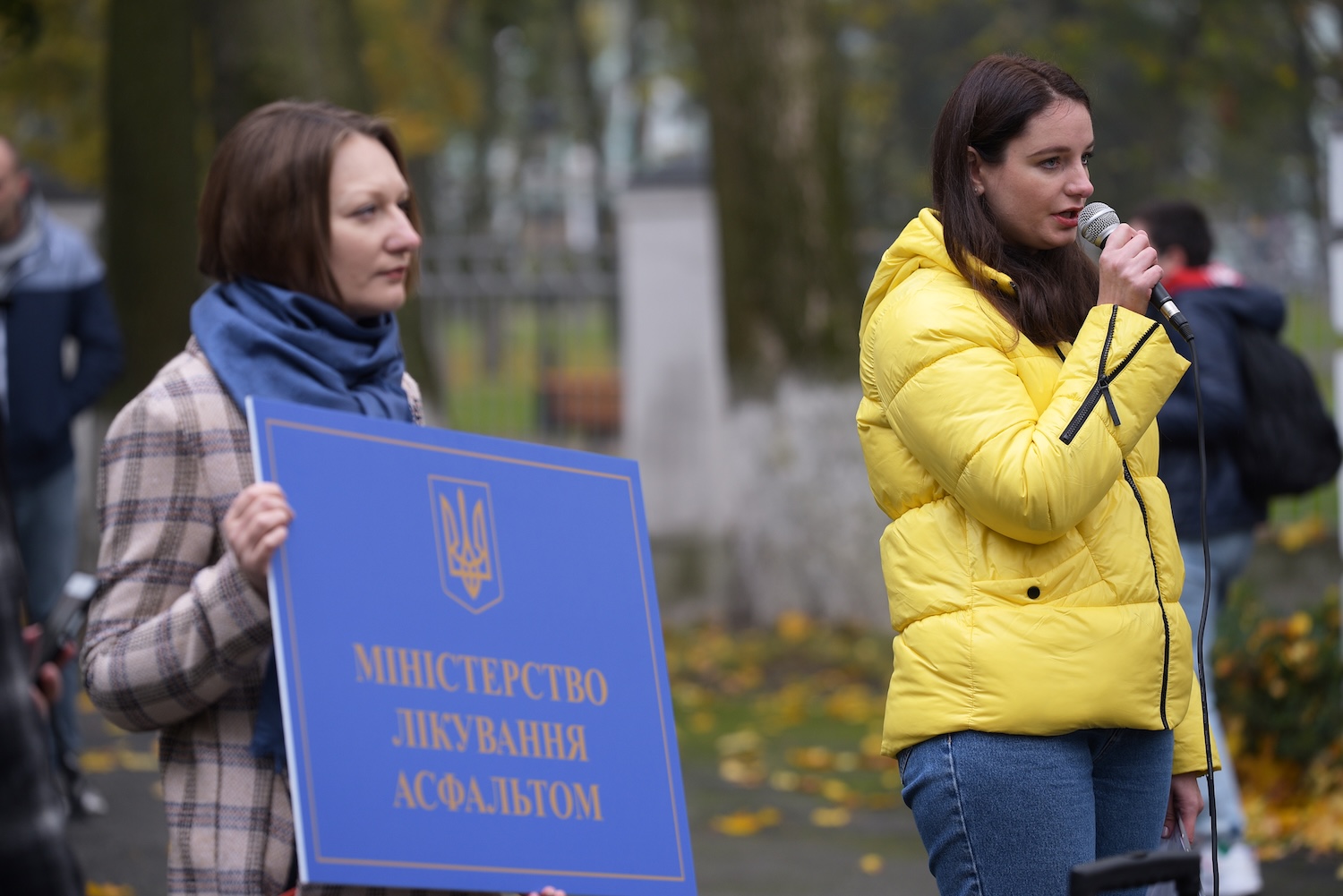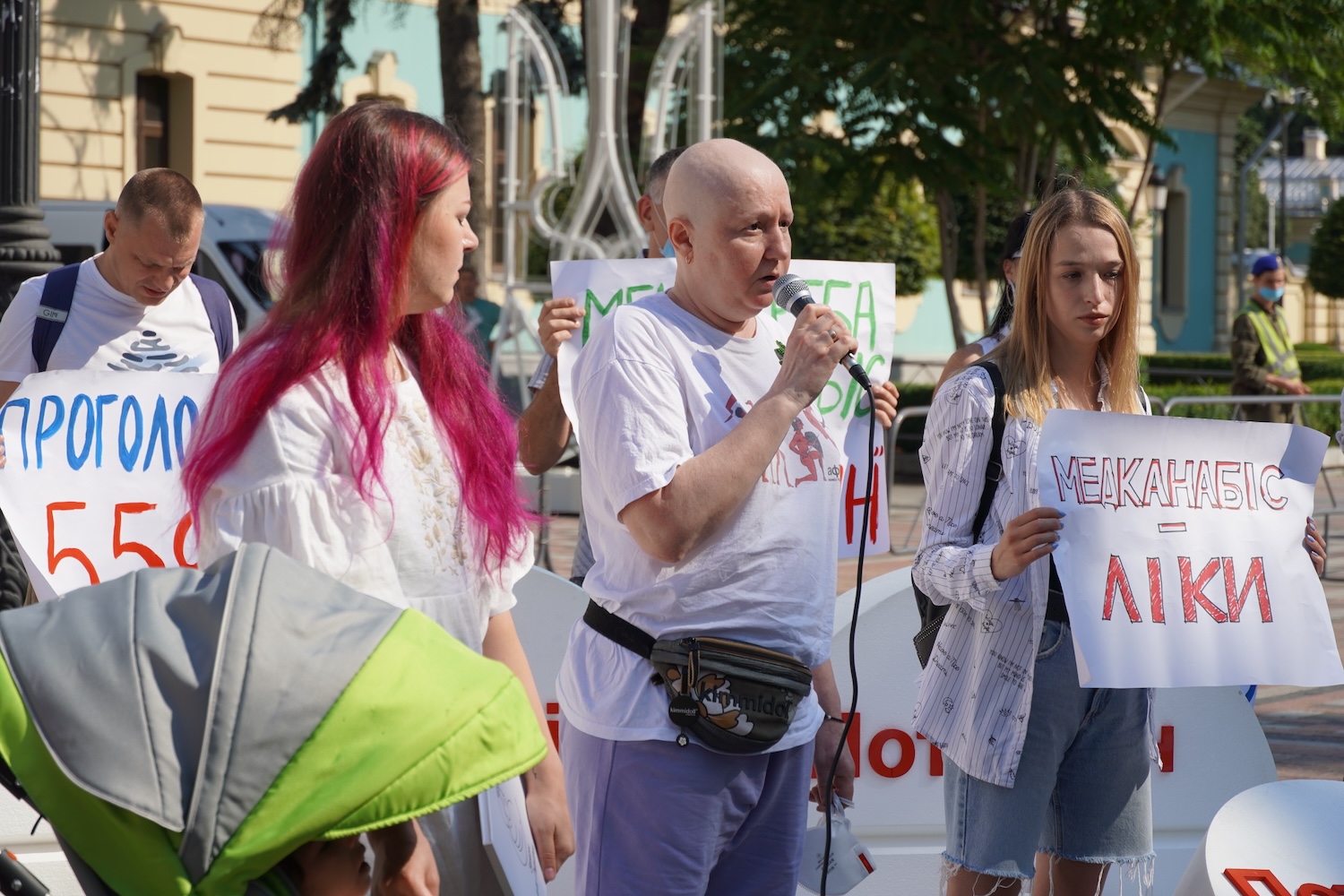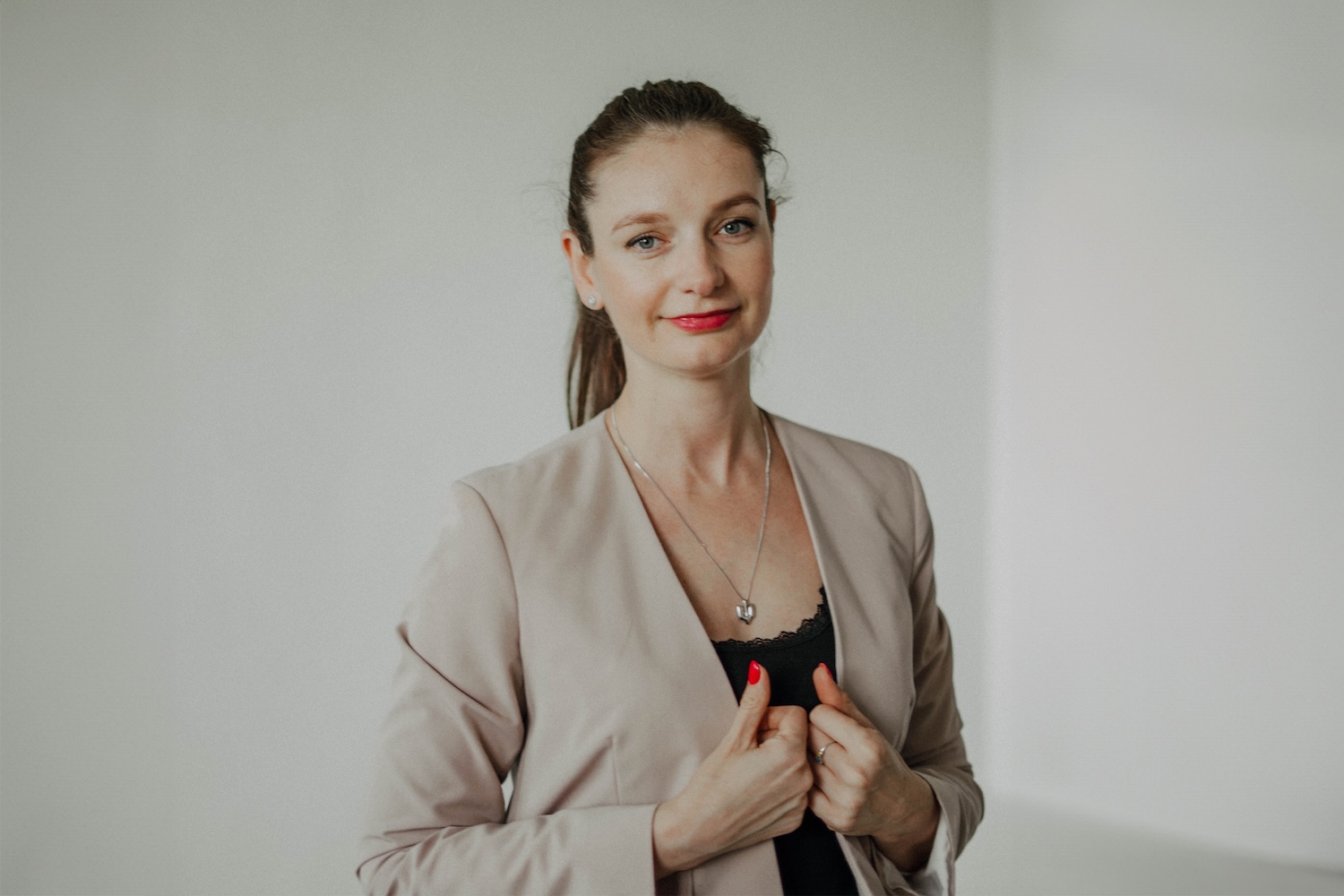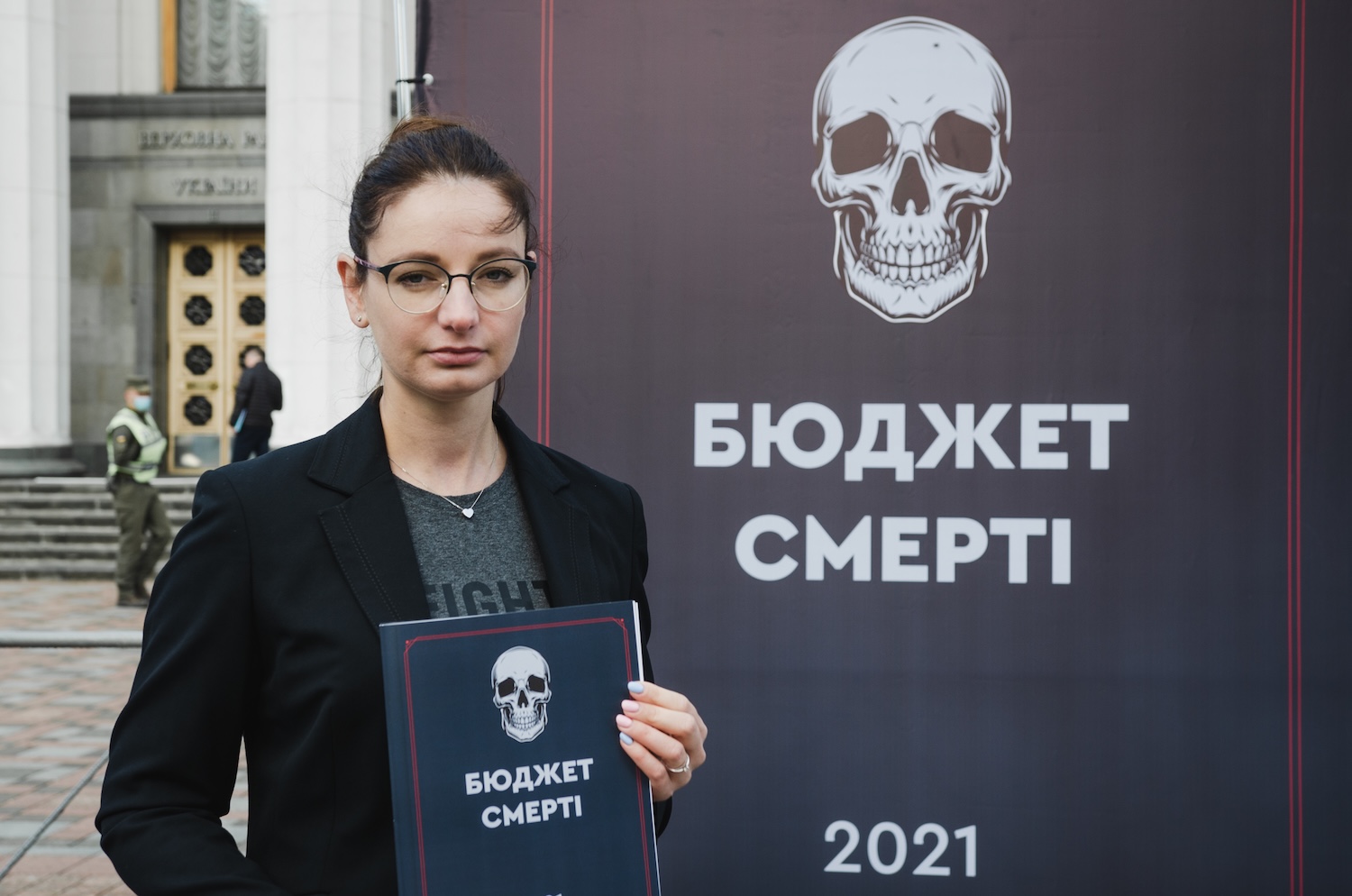Inna Ivanenko, Executive Director of the Charitable Foundation “Patients of Ukraine“, told HMH about her professional career and the challenges faced by the organisation. Read in the interview how a small team of volunteers managed to reform the Ukrainian healthcare system, overcome corruption in drug procurement and what plans the Foundation has for the future.
My whole life is connected with the humanitarian aid sector
— What was your professional path before you started working at the CF “Patients of Ukraine”?
I studied at the Faculty of Humanities. But at a certain point I became disillusioned. I wanted to be involved in making a difference in people’s lives rather than just studying theory. So I enrolled in a master’s programme at a school of social work. Since then, my whole life has been connected with the field of humanitarian aid. As a student, I helped a small NGO in Kyiv. We implemented an advocacy project for people living with HIV/AIDS and taking antiretroviral therapy. These are pills that they have to take every day and carry with them all the time. We have managed to ensure that when these people are detained by the police, for example, these pills cannot be taken away from them. Then I believed that a lot could depend on us, ordinary citizens.
After graduating from university, I worked for four years in a large organisation that was then called the All-Ukrainian Network of People Living with HIV/AIDS. This experience gave me an understanding of how to help people living with serious illnesses. This is how Patients of Ukraine was born.

Read also: Head of Help in Ukraine Oleksandr Novikov: our leitmotif is that we are all volunteers at heart
— When was this charity founded?
We founded the organisation in 2011. It had a different name then, and later we rebranded it.
— What was your goal when you started the organisation? What was the essence of the organisation?
The essence of the organisation was to advocate for access to treatment for people with serious illnesses. After all, when I entered this field almost 20 years ago, I saw that formally the state guaranteed access to treatment, but in fact people in hospitals did not receive this treatment. Why? Because there was widespread corruption at the national level, at the level of the Ministry of Health. According to our estimates, about 40% of the funds allocated from the state budget for the procurement of medicines were stolen at the level of the Ministry of Health’s tender committee at that time. But after the Revolution of Dignity in 2014, a window of opportunity opened for us to change the old system.
Back then, the Patients of Ukraine organisation was very small — only five people worked in the office. However, we were already uniting patient communities around us. So we decided to become an advocacy organisation — the voice of patients.

Read also: Niya Nikel: Women “Rule” This World and Make It Better
Our first idea was to reboot the state procurement system for medicines. We proposed to transfer the procurement function from the Ministry of Health to internationally trusted organisations such as UNICEF and UNDP. It was an extremely challenging but successful project. I remember how we literally sat on window sills around the clock with laptops. I left the Ministry of Health after 10 pm every day. But we managed to launch this mechanism.
Another important thing that we are involved in as an NGO is the reform of the healthcare system. We have organised congresses of Ukrainian and international experts, and the concept of the reform was born, which formed the basis of the legislation. Hospitals can now manage their own funds independently, rather than waiting for instructions from above.
— How many employees does your organisation currently have?
Before the full-scale invasion, there were 15 of us. But the war brought new challenges, and now there are more than 60 of us.
Rehabilitation should be based on evidence-based medicine
— How has the full-scale war changed the vector of your business?
First, our team has expanded significantly. Second, we have started to take many additional actions to support the healthcare system. We have a separate team that helps medical facilities near the frontline. It procures medicines and consumables with donor funds. We also respond promptly to major disasters, such as the shelling of Okhmatdyt, and send help.
Another area of work that emerged during the war is the repair of primary care hospitals damaged by hostilities. During the war, we repaired 46 such facilities, all of which are located in the de-occupied territories.
Another large-scale initiative is the development of a physical rehabilitation system. Many people think that rehabilitation is electrophoresis, magnets or mud. Or that you will be warmed up, shone with light, and you will be cured. But in reality, rehabilitation should be active, based on evidence-based medicine and carried out by a multidisciplinary team of specialists. In addition, a person has to make a lot of personal efforts to recover.

Read also: Maksym Dotsenko: Red Cross is reflection of country’s image
We work with international donor support
— What are your funding sources? Do you announce budgets?
We publish all our financial reports on our website — this is public information. We regularly undergo audits. Our foundation work mainly with international donor support, submitting project applications in which we present our ideas. For example, we cooperate with the Swiss Embassy, the German organisation GIZ, and the UNICEF programme.
— What are your plans for the future?
Our global goal is to ensure that patients in Ukrainian hospitals do not pay for services out of their own pockets. We have already tackled corruption in procurement at the national level, but it remains at the local level. We are working on mechanisms to overcome it, in particular through the introduction of supervisory boards in hospitals.
Okhmatdyt is a huge challenge for me personally. I chair the Okhmatdyt Restoration Council, and this is my personal project. Although I have no experience in construction, I have to learn a new field, but I believe that all the restoration processes will be legal, efficient and fast.
Read also: Maria Pavlichuk: At JuniorS, we are fighting for the space for childhood



